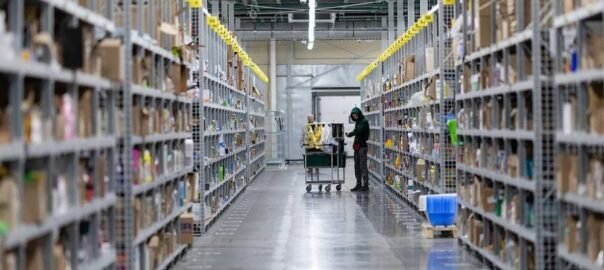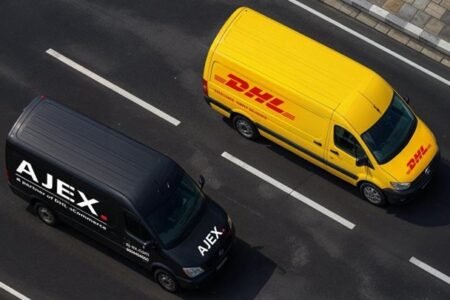
The Dark Store Market: Transforming E-Commerce Logistics with Unprecedented Growth Projections
The global Dark Store Market is undergoing a transformative phase as e-commerce and logistics industries adapt to meet the rising demand for fast and efficient last-mile delivery solutions. With the market size valued at USD 16.54 billion in 2023, this innovative retail model is set to experience exceptional growth, expected to reach a staggering USD 414.31 billion by 2033, expanding at an impressive 38% compound annual growth rate (CAGR) over the next decade.
What is the Dark Store Concept?
A Dark Store refers to a retail space designed specifically for fulfilling online orders, rather than serving walk-in customers. These stores operate like distribution hubs where products are stored, picked, packed, and shipped to customers’ doorsteps. Unlike traditional brick-and-mortar stores, dark stores have no storefront and do not cater to in-person shoppers. This model significantly streamlines the supply chain by removing the need for a physical shopping experience, allowing retailers to prioritize faster delivery times and cost-effective operations.
Drivers Behind the Market Growth
Several factors are contributing to the rapid growth of the dark store market:
- E-commerce Boom: The accelerated shift toward online shopping has fueled the demand for efficient fulfillment centers. As consumers expect faster delivery times and greater product variety, dark stores have emerged as a cost-effective solution for retailers to handle high volumes of orders swiftly.
- Consumer Expectations for Speed: The modern consumer demands faster service, and dark stores meet this need by being strategically located to facilitate swift dispatch and deliveries. With the rise of rapid delivery services like instant grocery delivery, dark stores are pivotal in enabling these services, allowing for fulfillment times of hours rather than days.
- Reduced Operational Costs: Traditional brick-and-mortar stores come with significant overhead costs, including staffing, real estate, and utilities. Dark stores, by contrast, are optimized for online order fulfillment, significantly reducing operational expenses for retailers.
- Technological Advancements: The integration of technologies like AI-driven inventory management, automated picking systems, and robotics has enhanced the efficiency of dark stores. These technological solutions ensure quick and accurate order fulfillment, providing a competitive edge for businesses operating in this market.
Regional Insights: Dark Store Market Growth
- North America: North America leads the dark store market, driven by e-commerce giants like Amazon and Walmart. High urban populations and advanced logistics make it a key growth region, though operational costs are a challenge. The market is set to grow rapidly.
- Europe: Europe is seeing strong growth, particularly in the UK, Germany, and France. Urbanization and sustainability concerns boost dark store demand, but regulatory challenges may slow expansion. Overall, the region is poised for significant growth.
- Asia-Pacific: Asia-Pacific, especially China, India, and Japan, is growing rapidly due to e-commerce expansion and tech-savvy consumers. While logistics infrastructure is developing, the region offers immense potential for dark store adoption.
- Latin America: In Latin America, Brazil and Mexico are emerging as key markets. E-commerce growth and improved logistics infrastructure promise rapid dark store expansion, despite some economic challenges.
- Middle East & Africa: The Middle East and Africa are early adopters, with the UAE, Saudi Arabia, and South Africa leading. Urbanization and e-commerce growth are creating opportunities, but underdeveloped logistics networks pose challenges.
Key Players
- Amazon.com, Inc.
- Swiggy
- Uber
- Ola Foods
- Supermarket Grocery Supplies Pvt Ltd.
- Walmart, Inc.
- Target Brands, Inc
- Dunzo Daily
- Instacart
- Auchan
- Wolt
- Flipkart
- Grab
Recent Market Developments
- June 2022: Naturepro has introduced same-day delivery across India along with the opening of ZFW dark stores. Both brands have partnered to promote sustainable and affordable products.
- September 2022: Intacart has acquired Rosie to implement and use its technology in locally operated grocery spaces, expanding the customer base and distribution channels.
- Amazon India has signed MOUs with the Council of Handicraft Development Corporation (COHANDS) to promote the products under the Karigar program, which is an initiative that supports local craftsmen.
Dark Store Market by Category
By Age Group, Dark Store Market is Segmented as:
- Children
- Adults
- Elderly
By Category, Dark Store Market is Segmented as:
- Groceries
- Meat
- Dairy
By Delivery Options, Dark Store Market is Segmented as:
- Curbside Pickup
- In-Store Pickup
- Home Delivery
By Non-Food Products, Dark Store Market is Segmented as:
- Cleaning
- Essentials
- Bath & Body
By Region, the Dark store Market is Segmented as:
- North America
- Europe
- East Asia
- South Asia & Pacific
- Middle East and Africa(MEA)
About Future Market Insights (FMI)
Future Market Insights, Inc. (ESOMAR certified, recipient of the Stevie Award, and a member of the Greater New York Chamber of Commerce) offers profound insights into the driving factors that are boosting demand in the market. FMI stands as the leading global provider of market intelligence, advisory services, consulting, and events for the Packaging, Food and Beverage, Consumer Technology, Healthcare, Industrial, and Chemicals markets. With a vast team of over 400 analysts worldwide, FMI provides global, regional, and local expertise on diverse domains and industry trends across more than 110 countries.
Author Credits- Newstrail.com







